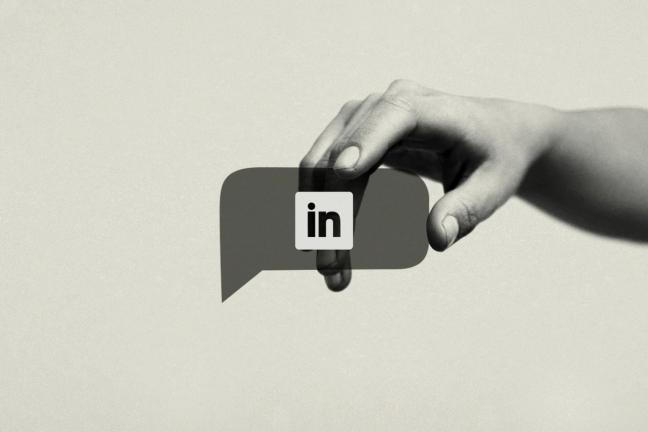Business School: How to talk to consumers during a pandemic
Professor Stefan Allesch Taylor tells brands to "think locally" during a lockdown
In his latest Business School column, serial entrepreneur, CBE, Professor of the Practice of Entrepreneurship and Fellow at King’s College London, Stefan Allesch-Taylor, tells us how less is more when it comes to speaking to our customers.
Ping, ping, ping and on it went – seven air piercing staccato announcements. Usually, it’s seven friends sending me the same ‘funny the first time’ gif. It was early in the first national lockdown and I wasn’t in the mood for any pings.
I had taken over as CEO of a number of SME F&B businesses of various sizes. No pings were ever good pings in those days. I was irritated at the noise and picked up my phone. I was even more irritated when I realized they were all from me.
Well, not exactly. But they were all marketing communications from each of the seven brands I run. I am on the e-mailing lists. They were seven messages to me that didn’t actually say anything much. And, worse than that — I had signed them all off to go.
This was not a good start……

Professor Stefan Allesch-Taylor
The stop/start, start/stop, nature of businesses over the last, now near 12 months, has made marketing and communications to customers extremely difficult to navigate. How can you plan for the seismic disruption we are all facing on a near daily basis? Do we just keep telling our customers that we’re trading, or that we’re not bust whilst we’re not trading?
Marketing right now is everything. It can be important not for what you get right, but what you’re getting wrong. During 2020 76% of SME’s reported upskilling social media and data analysis capability. 40% of social media users spent more time on social media than ever before. Not surprisingly, there’s been a 70% increase in social media content year on year. The latter is a good thing: make sure you’re part of that statistic.
Simply telling your customers that you’re still ‘alive’ isn’t really appreciated. We all know how much direct, indirect, pervasive and outright intrusive marketing is being inflicted on all those folks who trusted us with their precious email addresses and phone numbers right now. As an operator, I have likened the situation as going to the top a mountain and yelling something and expecting someone to hear it. You said it — it doesn’t mean anyone heard it.

42% of marketeers have said they can’t cope with the speed of market changes and the need for outrageously fast reaction times. That kind of fatigue is understandable. And while understanding is important, complacency is not. Saying ‘it’s a pandemic, everything is screwed, it’ll get better’ isn’t going to help you. Your customers have their own problems, they will remember you for what you get wrong and for what you get right, but if you are incredibly unlucky, they won’t remember you at all — you never moved the needle.
In marketing you live or die by the strength of your marketing calendar and by being prepared, mostly for the big events, Easter/Christmas, Australia Day (I threw that in there for my love of Lamington Cakes — it’s a thing). Now we deal with soft launches, partial launches, half open, nearly open, online open etc. And we watch and wait, ready to pounce on ‘full open’. Even that comes and goes.
This is the new normal and businesses now have to stop flapping and get to grips with what their customers need rather than what they would like them to have in terms of communications. Don’t be all about you and don’t be opportunistic. There are no playbooks. Budgets are being cut, its tough for ‘the many’, but that gives you an opportunity too. Think local. Think community.

40% of consumers neither want nor appreciate humour in marketing communications. Park that. Too soon. The underlying messages have to be clear, about safety, positivity and normality. People want support, guidance and help. Go the extra mile. Whipping out that tried and tested discount opportunity is going to get very old and will devalue your brand or the product you’re selling – you don’t want those sale prices that barely keep the lights on to set the permanent expectation of your pricing. Your customers are unlikely to sympathize with your logic (especially the new ones you have gained), when you normalize your prices post pandemic, you will look opportunistic at best.
Changing your leadership voice can be hard in these extreme situations, when all you want to do is say/shout/shriek to everyone around you (not the cat – I’m talking about those video calls) SELL! SELL! SELL! 90% of consumers appreciate timely and relevant information. Think about what message you’re conveying and why you’re conveying it. What is its value to the recipient, and would it move you to action? The uncertainty is with us for a while yet, and for many, many businesses cutting to profitability is not an option: top line growth is the only way to get through this in reasonable shape.
Finally, remember this. 89% of Gen Z and Millennials expect brands of all sizes to be doing something to help society during the pandemic. No matter how small.
Read next: The business lessons we can learn from an unprecedented year…
Become a Gentleman’s Journal member. Find out more here.

Become a Gentleman’s Journal Member?
Like the Gentleman’s Journal? Why not join the Clubhouse, a special kind of private club where members receive offers and experiences from hand-picked, premium brands. You will also receive invites to exclusive events, the quarterly print magazine delivered directly to your door and your own membership card.